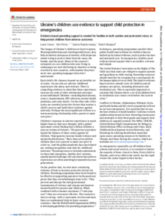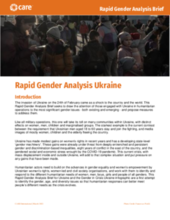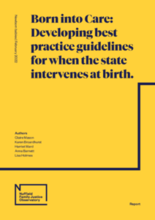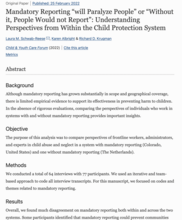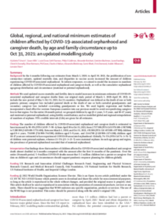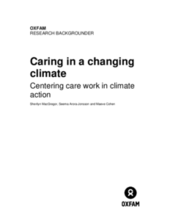Displaying 191 - 200 of 1028
This opinion piece published in the BMJ, argues that evidence based parenting support is needed for families in both sudden and protracted crises, to help protect children from adverse outcomes. The authors say that in emergencies, families need evidence based support that is accessible, relevant, and simple. The parenting programmes prevent and disrupt the intergenerational transmission of violence and trauma and improve mental health for parents and children. When combined with economic assistance (“‘cash plus care”) they are even more effective.
These are the closing remarks of Ilze Brands Kehris, Assistant Secretary-General for Human Rights, at a side event in the context of the 66th session of the Commission on the Status of Women.
These opening remarks were delivered by Michelle Bachelet, UN High Commissioner for Human Rights, at 49th session of the Human Rights Council 9 March 2022. The focus of her remarks was on the alarming numbers of children who are torn apart from their families due to a number of reasons.
This Rapid Gender Analysis Brief seeks to draw the attention of those engaged with Ukraine in humanitarian operations to the most significant gender issues both existing and emerging and propose measures to address them.
Separating a baby from his or her mother at birth when there are safeguarding concerns is traumatic for birth parents and painful for professionals. This report presents findings from a study that analysed qualitative data from the lived experiences of parents and professionals where the state intervened at birth. The aim was to identify key challenges and to surface good practice examples with a view to developing a draft set of best practice guidelines for piloting with partner research sites in England and Wales.
The purpose of this analysis was to compare perspectives of frontline workers, administrators, and experts in child abuse and neglect in a system with mandatory reporting (Colorado, United States) and one without mandatory reporting (The Netherlands).
At least 5 million children have lost a parent or caregiver due to #COVID19 since March 2020, updated figures suggest. The authors urge actions to prioritise affected children, incl. economic strengthening, enhanced community and family support, and education.
The aim of this report is to fill a knowledge gap by examining the points of interaction between climate change impacts and the amount, distribution, and conditions of unpaid care work. We focus on care workers rather than those who are cared for, while stressing the relational nature of care and acknowledging
that carers too require care.
It is starting to be recognised that young people with mental health and/or intellectual disabilities making the transition to adulthood from out-of-home care require focused attention to understand their needs and service requirements. Within the UK jurisdiction of Northern Ireland (NI), young people with mental health and/or intellectual disabilities are over-represented in the population of care leavers and yet very little is known about their specific needs. The overall aim of the study reported here was to examine the profile of care leavers with mental health and/or intellectual disabilities in order to better inform how best to configure child and adult service systems to meet their transitional needs.
The UNICEF-Changing the Way We Care Regional Learning Platform for Eastern and Southern Africa held its first webinar of the year on Child Protection System Strengthening and Care Reform.

